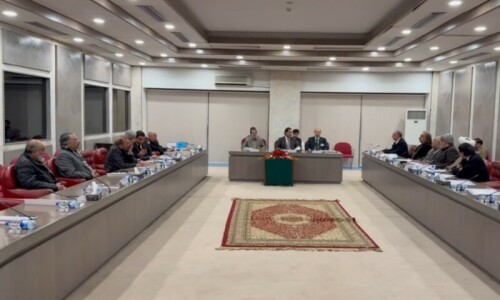WITH the country gearing up for Eidul Azha, hundreds of thousands of animals are being brought to cities and towns where they will remain in herds until sold on for sacrifice. But in recent years, an issue that has cropped up repeatedly is the absence of mechanisms to screen livestock and separate infected animals from the healthy ones. After all, it is crucial to isolate infections that could render an animal unsafe for consumption, or affect the human population. As a study conducted by this newspaper with reference to Karachi found on Tuesday, most animals are not vaccinated and many are infected. For many years, Eidul Azha has been followed by a major outbreak of foot-and-mouth disease — 1,000 outbreaks across the country during the past year alone. And it is not just FMD we need to worry about, but also Congo virus and sundry others.
The reason behind the lack of screening mechanisms can be found in the manner in which livestock has traditionally been reared in this land for centuries. Where in vast parts of the world there are controlled environments for livestock, in Pakistan the old ways still reign supreme. Thousands of families follow the nomadic lifestyle, driving their livestock across the land in search of fresh pastures and then bringing them down to towns and villages when they are ready to be sold. Even where rearing animals for consumption is an occupation for people who root themselves in a certain area, in Punjab and Sindh, for example, it can hardly be said that technology or veterinary practices figure much in the process. But modern times put forward pressing new challenges, and the need to separate healthy from infected animals before they pass the disease on to larger populations — human and animal — is critical. We have been lucky so far that disease outbreaks have been contained; this could change at any time.
With animals converging upon sale points ahead of Eid, city administrations still have time to get their act together.











































